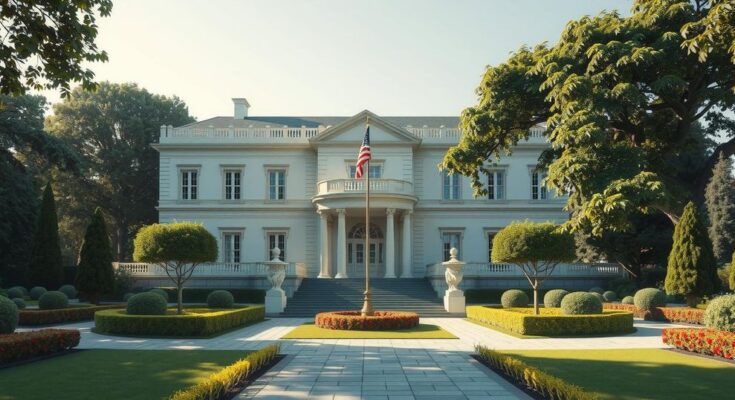US envoy Morgan Ortagus stated in Lebanon that Hezbollah will not be part of the government, reaffirming appreciation to Israel for its role in defeating the group. She emphasized America’s commitment to ensuring Hezbollah’s disarmament and exclusion from governance while addressing the complex dynamics of Lebanon’s political struggles and Israel’s military presence.
During a conference at the Presidential Palace in Lebanon, US President Donald Trump’s Middle East envoy, Morgan Ortagus, asserted that Hezbollah will not be included in the Lebanese government, claiming that its “reign of terror” is “over.” She expressed gratitude to Israel for its role in defeating the militant group, acknowledging support from Lebanese leaders and the populace.
Ortagus emphasized her resolve against Hezbollah, stating, “I am certainly not afraid of Hezbollah, because they’ve been defeated militarily.” She reinforced that the United States has established clear boundaries to prevent the group from terrorizing the Lebanese people, including its exclusion from the government.
She proclaimed the beginning of the end for Hezbollah’s influence, declaring, “The end of Hezbollah’s reign of terror in Lebanon and around the world has started… and it’s over.” In response to queries regarding the withdrawal of Israeli forces from southern Lebanon, she referred to February 18 as the scheduled date for redeployment, contingent upon the Lebanese army’s readiness.
Lebanese President Joseph Aoun underscored the necessity for Israel to comply with ceasefire regulations and withdraw its troops, remaining silent on the matter of Hezbollah’s governance role. Meanwhile, Prime Minister-designate Nawaf Salam has been working towards forming a new government amid a backdrop of dialogue and contention involving Hezbollah and the Amal Movement.
Recent discussions regarding government formation faced setbacks, highlighting tensions over ministerial appointments and the roles of Shia parties. Reports indicated dissonance between Salam and Parliament Speaker Nabih Berri trigger concerns over ministerial selections not aligned with either Hezbollah or Amal. Concurrently, Israeli military actions have intensified in southern Lebanon, pointing to a volatile regional situation.
The stipulated 60-day withdrawal for Israeli forces has been postponed to February 18, during which the Lebanese military is expected to secure the region and dismantle Hezbollah influences south of the Litani River, as per the terms of UN Resolution 1701. However, Israeli officials assert that Lebanese commitments have yet to be fulfilled, given the ongoing presence of Hezbollah.
It is noted that Israel has reportedly violated the withdrawal agreement over 1,300 times, reinforcing doubts concerning the Lebanese army’s compliance and Israel’s stance on troop withdrawal.
The article discusses a significant statement made by Morgan Ortagus, the US envoy, during her conference in Lebanon regarding Hezbollah’s status in the Lebanese government and Israel’s role in defeating the militant organization. This issue is critical amid ongoing tensions between Israel, Hezbollah, and the Lebanese government, reflecting broader regional dynamics and the implications for Lebanon’s political landscape.
In summary, Morgan Ortagus’s comments during her visit highlight the ongoing conflicts surrounding Hezbollah’s political influence in Lebanon and the complex relationship with Israel. The impending deadlines for Israeli troop withdrawal are compounded by internal Lebanese political struggles and external pressures, with overarching concerns about stability and security in the region.
Original Source: thecradle.co




